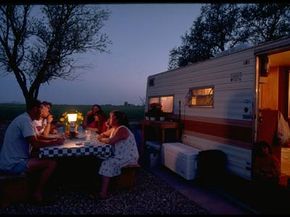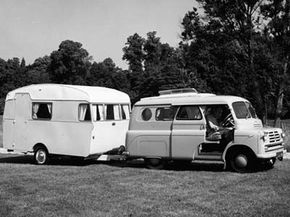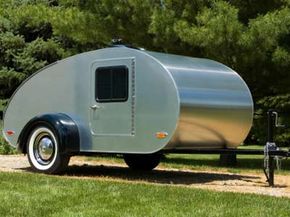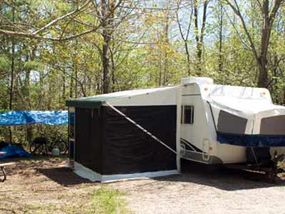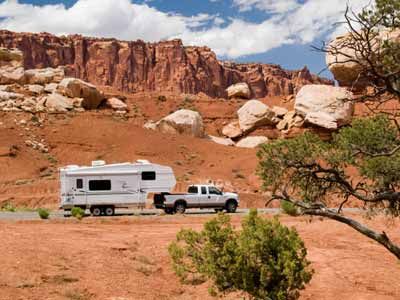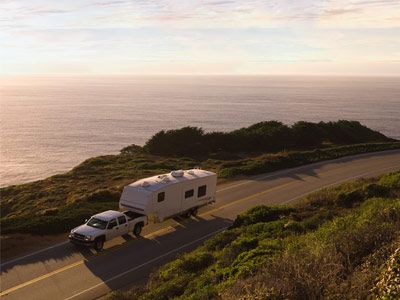Does your idea of roughing it involve carrying a 40-pound (18-kilogram) backpack full of gear, hiking to the middle of nowhere and setting up a tent? Or do you consider a hotel without room service to be an adventure? For many of us, the answer is somewhere in between -- we enjoy travel and adventure, but we don't want to give up all the comforts of home in the process. If this sounds like you, a camper might be the perfect way to satisfy your needs.
Buying or renting a camper gives you the mobility you'd need to travel across the country. In the United States, some families use campers to take trips coast to coast, exploring various parks and sites of interest along the way. While a camper might be a hefty investment up front, in the long run using one can save you money on lodging if you travel by car often.
Advertisement
So let's say you've decided you want to buy (or rent) a camper for a trip that will take you across hundreds of miles of open road. There are many things you'll need to take into consideration before you choose a camper. For example, do you own a vehicle that has the capacity to tow a camper? If not, you'll need to buy or rent a vehicle that has the proper tow rating for the camper you want.
Campers come in all shapes, sizes and prices. Some campers are full recreational vehicles (RVs). But the campers we'll be looking at in this article are meant for towing. Some provide little more than a mobile shelter that will keep the elements off your back. On the other end of the spectrum are luxurious campers that have full bathrooms with showers, entertainment systems, fluorescent lighting, separate bedrooms and even ceiling fans. The kind of camper you use will depend on three things: your budget, how you feel about towing a large camper behind your vehicle and your desire for comfort once you get to where you're going.
We'll take a closer look at the different types of campers in the next section.
Advertisement
